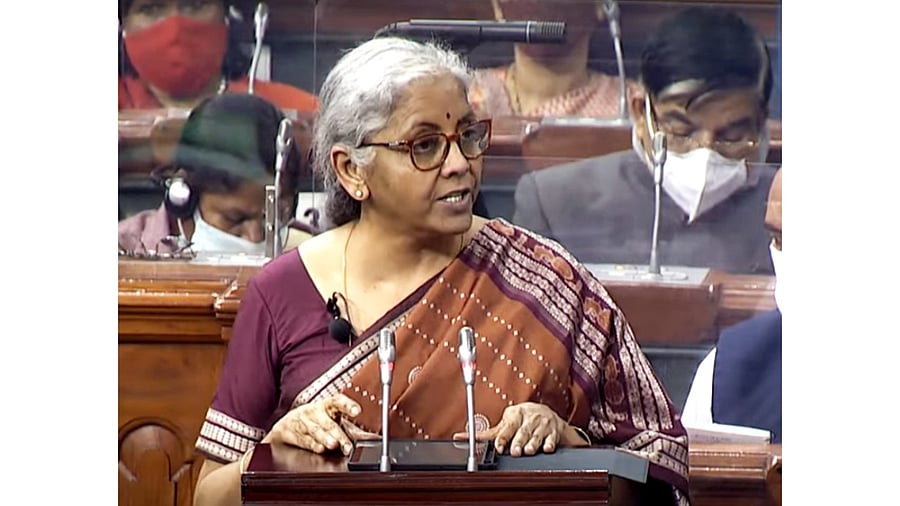
Finance Minister Nirmala Sitharaman on Tuesday proposed an additional allocation of Rs 19,500 crore under the PLI scheme for the domestic production of solar equipment.
With this, the funding for the scheme has risen from Rs 4,500 crore to Rs 24,000 crore.
The Budget decision, she said, was a commitment from the government to meet its goal of achieving 280 GW of solar deployment by 2030.
"Production Linked Incentive for the manufacture of high-efficiency modules, with priority to fully integrated manufacturing units from polysilicon to solar PV modules, will be made," said Nirmala in her speech.
The scheme was aimed at adding a 10,000 MW manufacturing capacity of integrated solar PV modules. The PLI scheme -- National Programme on High Efficiency Solar PV Modules -- approved by the Union Cabinet, was aimed at reducing import dependence in a strategic sector like electricity.
Under the scheme, solar PV manufacturers will be selected through a transparent competitive bidding process. The PLI will be disbursed for five years post the commissioning of solar PV manufacturing plants, on sales of high-efficiency solar PV modules.
The proposal to boost the allocation of the PLI scheme is a part of the government's climate action plans.
Leaders in the Opposition dismissed the Budget as mere rhetoric. Congress MP and former environment minister during the UPA II regime Jairam Ramesh said the government was on a "destructive path."
"On the one hand, the Budget talks of climate action and protecting the environment. On the other, it pushes ecologically disastrous river-linking projects. Rhetoric sounds nice. But actions matter more. On that front, the Modi govt is on a destructive path," he tweeted.
Ramesh was referring to the implementation of the Ken-Betwa river-linking projects and the approval of Detailed Project Reports (DPRs) for five other such initiatives by the government.
The finance minister mentioned that the Ken-Betwa project would be implemented at an estimated cost of Rs 44,605 crore. "This is aimed at providing irrigation benefits to 9.08 lakh hectares of farmers’ lands, drinking water supply for 62 lakh people, 103 MW of hydro, and 27 MW of solar power," she said.
She added that the draft DPRs of five river linkages, "namely Damanganga-Pinjal, Par-TapiNarmada, Godavari-Krishna, Krishna-Pennar and Pennar-Cauvery" were finalised.
The advantages of such projects include the increased availability of water for irrigation, drinking and power generation, while the pitfalls include long-term ecological damage and the displacement of people.
An opinion piece on Livemint argued that the project "seems to view the river as a unidimensional water pipeline when it is, in fact, an entire ecosystem". The piece said that any changes to a river's natural course would impact not just the flora and fauna and also the wetlands and floodplains linked to it.
According to the publication, the Ken-Betwa linkage was stalled for several years because the environmental clearance was needed to divert 5,500 hectares of forests from the Panna National Park, a tiger reserve.
(With agency inputs)
Check out latest DH videos here
